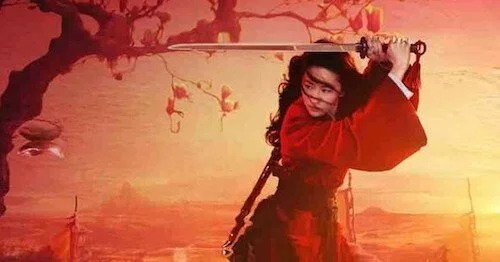Cancel Culture and Cinema
With the release of the live action Mulan, there arises a discussion of the current predicament that cinema finds itself in: answering to cancel culture. As detrimental as this culture can be, I do think there is a lot of good that can be used to point out the current construction of films by directors, producers and studios that should know better. Mulan’s many problems, including the Americanization of the wuxia style, the filming of the location of the detainment camps of one million Uigher Muslims, the alleged original idea to have a primary character be caucasian, and Liu Yifei’s comments on Hong Kong last year, have become a laundry list that is getting out of hand. Some of this — regarding the latter portion about the political comments — I say to separate the artist from the art (I can confirm I do not share Yifei’s sentiments, however). Otherwise, the internet’s army pointing out these many issues (amongst the ones I forgot to list, but you get the idea) can lead to the urgent care that the filmmaking process is in need of.
Look, going back and picking out films that have already been made is a little bit different, but I do think that this current capability — with Mulan as the example — can maybe lead to films being finally made a little bit differently in Hollywood. The first key factor is the huge wave of problems, which only keep being discovered by the day at this point. If studios want to avoid problems, then they shouldn’t make problematic films. It’s as easy as that, right? Not really. Many higher ups with big bucks don’t necessarily care about all of that. However, 2020 is a bit of a curveball year (as we all know), and a film like Mulan can take a big enough hit to be noticeable. Will Disney hurt? Probably not. However, chances are they’d want to avoid this never ending growth of a backlash with the next venture, I’m sure. The idea of a monopoly — which Disney is clearly aiming for — is to have all parts functioning well. Their film department is included in this.
With Disney being the figurehead wanting to eschew toxicity and problematic behaviour (hopefully), maybe other studios wanting to swim above the surface will follow. Everyone’s trying to get their businesses and industries out of the pandemic, and will do whatever it takes to listen. It’s sad that it takes this kind of a momentum for the film industry to care about these kinds of offences, but that' may very well happen. We know the dinosaurs at the top won’t change out of morals per se, but they’ll want to hang onto every dollar right now, so maybe they’ll play ball but for the wrong reasons (which, again, is sad). What makes something like Mulan exceptionally irritating for many is that a profitable conglomerate like Disney should know better and can afford to do better. So, why don’t they? Maybe now they will.
I can only comment on how I approach cancel culture myself otherwise. When I look at older films or enjoy older artworks (music, literature, even video games are old enough to have noticeable distancing away from our current morality), I try to understand the time and place that a film was made. I don’t excuse it, but I view it contextually. I believe problematic older works can be listed as problematic, and there’s nothing wrong with that. Censorship is a step in the wrong direction, because it feels like we’re pretending these awful views and behaviours never happened (and, sadly, many people still have a lot of learning to do as well). Instead of pretending that these films aren’t bad either, discussing why they’re problematic is the best way to go about it.
However, when it comes to works being made now, I believe that calling these works out makes perfect sense. We’re in 2020. We’re connected enough online to hear enough voices to know how storytelling and art should be approached. That’s the major difference: now, we can reach out to all kinds of people and really see and hear their responses. None of the problematic content before was okay; society just can’t pretend it is anymore. If we’re looking back in disgust, I find it deplorable that major players are still making these same choices without giving one iota of a care. A performer has a political view that i don’t agree with? I’ll watch the film as it stands. A film has racist connotations or is holding back on marginalized voices for stupid reasons? Seize ‘em, Twitter.
Andreas Babiolakis has a Masters degree in Film and Photography Preservation and Collections Management from Ryerson University, as well as a Bachelors degree in Cinema Studies from York University. His favourite times of year are the Criterion Collection flash sales and the annual Toronto International Film Festival.



